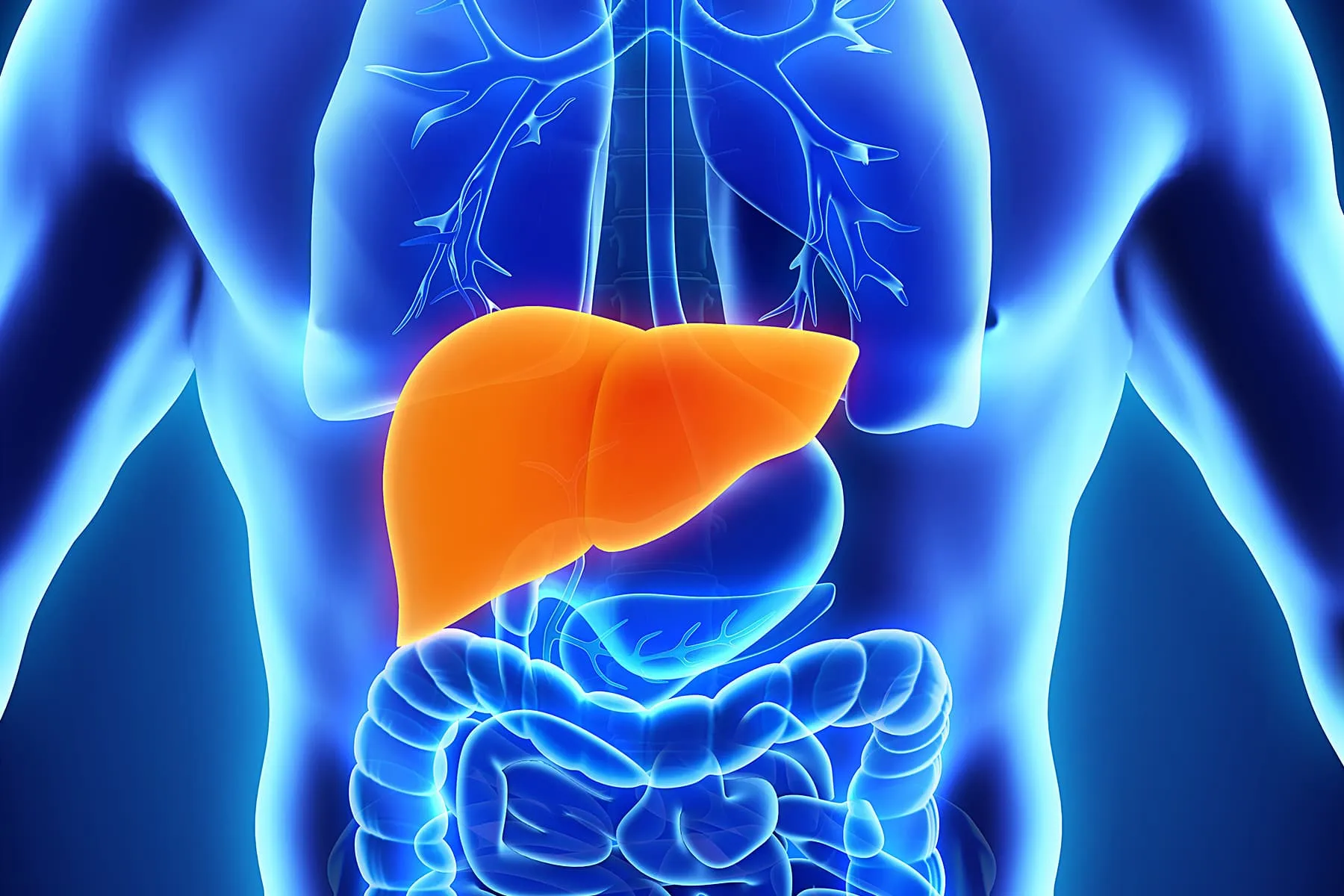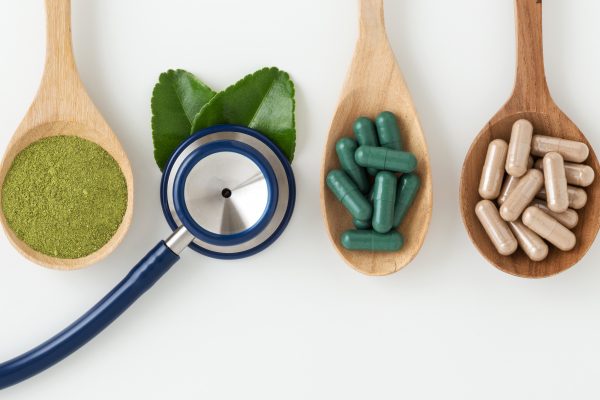
Hormonal Imbalance, Skin Issues, Weight Gain, Is Your Liver to Blame?

Hormonal Imbalance, Skin Issues, Weight Gain, Is Your Liver to Blame?
When most of us think of the liver, we picture an organ that helps digest food or filters out alcohol. But the liver does far more than that. It is your body’s internal chemist, controlling hormones, metabolism, skin clarity, and even your mood. If you have been struggling with hormonal imbalance, adult acne, or stubborn weight gain, your liver may be at the heart of it all.
In functional medicine, we believe that when the liver is in harmony, the rest of the body follows. It silently manages hundreds of tasks every second. When it becomes overworked, the signals show up everywhere, in your hormones, your energy levels, your digestion, and on your skin.
The Liver: More Than Just a Detox Organ

The liver performs over five hundred functions daily. It processes nutrients, bre aks down fats, filters out toxins, and regulates hormones. Three of its most vital jobs directly affect your hormonal balance and skin health: detoxification, hormone metabolism, and fat regulation.
When the liver is sluggish, toxins and hormones linger longer than they should. This creates a hormonal traffic jam inside your body. Estrogen, cortisol, and insulin begin to build up, disturbing your body’s delicate rhythm. The result is a chain reaction, irregular cycles, mood swings, acne, bloating, and weight that refuses to budge.
How a Tired Liver Affects Your Hormones

Hormones are like messengers carrying instructions from one cell to another. They work best when there is clear communication and timely removal once their job is done. The liver is responsible for clearing away these used-up hormones. When it fails to do so efficiently, old hormones re-enter circulation, particularly estrogen.
This condition, known as estrogen dominance, is one of the most common causes of hormonal imbalance. You may notice breast tenderness, PMS, water retention, headaches, and emotional swings. Some people also experience weight gain around the hips and thighs or pigmentation on the skin.
The thyroid also depends on the liver. It is in the liver that inactive thyroid hormone (T4) is converted into its active form (T3). When this conversion slows, metabolism decreases, causing fatigue, low mood, and hair fall.
Simply put, when your liver is burdened, your entire hormonal network begins to stumble.
Your Skin Tells the Story of Your Liver

Your skin is your body’s most visible detox organ. When your liver is overwhelmed, it sends excess waste and toxins through the skin as a backup route. That is why many people with liver imbalance notice acne, especially along the jawline or chin, as well as dullness, uneven tone, or pigmentation.
In functional medicine, these skin conditions are not treated as surface problems. They are seen as messages from within. Instead of covering up the symptoms, we ask what your skin is trying to say about your inner health.
Why Weight Gain Can Begin in the Liver
If you have been exercising regularly and eating well but still cannot lose weight, the problem may not lie in your willpower but in your liver. This organ produces bile, which helps digest fats. It also regulates blood sugar and insulin levels.
When the liver becomes fatty or inflamed, bile flow slows down, and fat metabolism weakens. You may start storing more fat around the abdomen and experience constant cravings or energy crashes. The liver also manages the balance between estrogen and cortisol. When both rise, the body holds on to fat as a defense mechanism.
The good news is that the liver has the unique ability to regenerate. When supported through proper care, metabolism begins to improve naturally, and weight loss follows as a side effect of healing.
Everyday Habits That Burden the Liver
You do not need to drink alcohol for your liver to feel the strain. Everyday habits in modern life quietly overwork this organ. Processed food, sugary beverages, pesticides, and chemicals from skincare or cleaning products all add to the toxin load.
Synthetic hormones, such as birth control pills, also increase the liver’s workload. Chronic stress is another silent factor. When stress hormones like cortisol remain high for too long, they reduce the liver’s capacity to process other substances. Poor sleep, dehydration, and digestive issues further contribute to congestion.
When these triggers pile up, you may begin to experience fatigue, brain fog, hormonal acne, irregular cycles, and stubborn fat.
The Functional Medicine Perspective

Traditional treatments often focus on reducing symptoms. Acne is treated with creams, weight with diets, and hormones with pills. But these are surface-level fixes. Functional medicine looks deeper. It connects the dots between your liver, gut, hormones, and lifestyle.
Healing begins with understanding the root cause. Practitioners assess nutritional deficiencies, toxin exposure, inflammation levels, and stress patterns. Once the cause is identified, the goal becomes supporting the body’s natural detoxification pathways rather than forcing them.
Restoring Liver Function Naturally
The first step is to nourish rather than punish your liver. This means focusing on gentle, daily support instead of aggressive cleanses or fad detox drinks. Nutrients like glutathione, milk thistle, and N-acetyl cysteine help the liver regenerate. B vitamins and antioxidants assist in hormone metabolism and protect cells from oxidative stress.
Hydration plays a huge role. Drinking enough water helps the liver flush out waste efficiently. Regular meals rich in colorful vegetables, healthy fats, and fiber support bile production and digestion.
The gut and liver are closely linked through what doctors call the gut-liver axis. When your gut is inflamed or imbalanced, toxins and undigested particles can enter the bloodstream, increasing the liver’s burden. Healing the gut through probiotics, fermented foods, and prebiotic fiber is therefore an essential part of any liver reset.
Nutrition for Hormonal and Skin Balance
Food is the most powerful medicine for your liver. Start by adding foods that naturally aid detoxification. Cruciferous vegetables such as broccoli, kale, and cauliflower help the liver process estrogen more effectively. Beetroots and carrots improve bile flow. Garlic, turmeric, and ginger reduce inflammation. Lemon water and green tea help maintain antioxidant levels.
Fiber is another key element because it binds excess hormones in the gut and removes them through waste. Include flaxseeds, oats, lentils, and plenty of vegetables in your daily meals.
Equally important is what you avoid. Cut down on refined sugar, fried foods, and processed snacks. Limit alcohol and reduce caffeine overload. Try switching to natural or fragrance-free skincare and cleaning products to reduce chemical exposure.
The Role of Lifestyle and Emotional Health
Your liver does most of its repair work while you sleep. Staying up late or sleeping irregular hours interferes with this natural rhythm. Aim for seven to eight hours of restful sleep each night.
Movement also supports detoxification. You do not need intense workouts; even walking, yoga, or light stretching improves blood circulation and lymphatic flow.
Emotionally, the liver is linked to feelings of anger, frustration, and stress. When these emotions stay bottled up, they can manifest physically as liver stagnation. Mindful practices such as deep breathing, journaling, meditation, or even spending time in nature can help release emotional tension and restore inner balance.
When Healing the Liver Changes Everything
Consider the story of a patient who came to Dr. Shibani with persistent acne, irregular periods, and weight gain that refused to shift. She had tried antibiotics, skin peels, and multiple diets with no success. Functional testing revealed estrogen dominance and early signs of fatty liver.
Instead of treating the skin directly, the focus was placed on liver and gut healing. Her plan included nutrient support, fiber-rich foods, stress management, and improved sleep hygiene. Within two months, her skin began to clear, her cycles became regular, and her energy levels improved dramatically. The weight she struggled with for years started to reduce without extreme dieting.
The change came not from fighting her symptoms but from restoring the system behind them.
The Emotional Link Between the Liver and Balance
Ancient medicine systems have long connected the liver to emotional flow. When we suppress our feelings or live under constant tension, the liver becomes tight and stagnant. This tension can reflect in our physical health as fatigue, irritability, or skin flare-ups.
By learning to express and release emotions in healthy ways, we indirectly support the liver. The mind and body are not separate; they communicate constantly. A peaceful mind gives the liver space to perform its functions more efficiently.
A Daily Routine to Support Liver Health
Start your morning with warm water and a squeeze of lemon. Eat meals on time, focusing on whole foods instead of processed snacks. Include at least one serving of green vegetables each day. Hydrate consistently. Move your body daily, even if it is just a twenty-minute walk.
Switch to clean skincare and household products to reduce chemical exposure. Wind down before bed with calming rituals such as reading, journaling, or gentle stretches. Remember that healing the liver is not about drastic detoxes but about consistent care.
The Bigger Picture
Hormonal imbalance, acne, and weight gain are not separate battles. They are symptoms of deeper internal communication errors, and the liver sits at the center of that system. When it functions well, hormones stabilize, metabolism improves, and the skin clears naturally.
Functional medicine teaches that every organ works in synergy. You cannot isolate the liver from the gut, the hormones from the mind, or the skin from emotions. Healing happens when we look at the body as one connected ecosystem.
A Note from Dr. Shibani
“Hormonal imbalance, skin problems, and stubborn fat are not your enemies. They are your body’s way of asking for attention. The liver is one of the most intelligent and forgiving organs we have. When you care for it with the right nutrition, rest, and emotional balance, it rewards you with vitality, glow, and balance from within.”
The Takeaway
Your liver is not just a detox organ. It is your body’s hormonal conductor, fat manager, and natural glow generator. Every time you eat clean, sleep well, or manage stress, you are helping it perform better. Healing your liver means healing your entire system, from your mood and metabolism to your skin and hormones.
If you have been feeling out of sync, start by giving your liver the care it deserves. Support it gently, stay consistent, and let your body show you how powerful natural balance can be.
